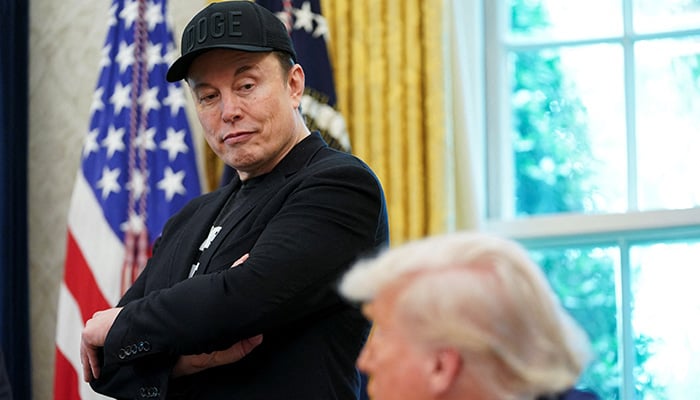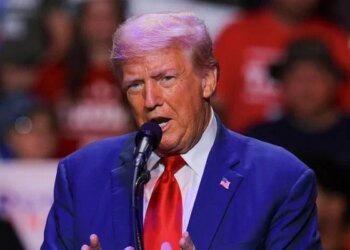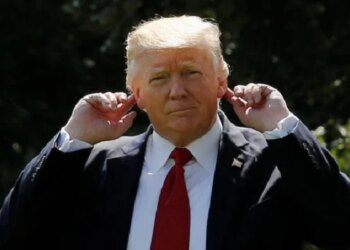Select Language:
Trump, Musk, and the Controversial Spending Bill
Image:
US President Donald Trump and Elon Musk at a press conference in the Oval Office, Washington, DC, May 30, 2025. — Reuters
- Republican leaders express disagreement with Musk.
- Hardline Republicans rally behind Musk’s statements.
- House passed the bill by a slim margin; Senate plans revisions.
Billionaire Elon Musk entered the fray on Tuesday, voicing strong opposition to President Donald Trump’s extensive tax and spending proposal, labeling it a "disgusting abomination" that exacerbates the national deficit.
Several fiscally conservative Republicans in the Senate echoed Musk’s sentiments conveyed via social media, complicating the bill’s potential passage in that chamber.
"I’m sorry, but I can’t ignore this any longer," Musk, CEO of Tesla and SpaceX, posted on his platform X. "This enormous, extravagant Congressional spending bill is a disgrace."
He continued, "Those who voted for it should be ashamed—they know it was wrong."
Musk’s comments resonated within the Republican Party. Some fiscal conservatives raised alarms about the bill’s expenses, which would prolong the 2017 tax cuts that were Trump’s hallmark achievement while also increasing defense and border security funding.
The House of Representatives narrowly passed the legislation last month, with the nonpartisan Congressional Budget Office warning that it would contribute $3.8 trillion to the existing $36.2 trillion federal debt.
While senators from Trump’s party are eyeing a vote on the "One Big Beautiful Bill Act" in the coming month, revisions to the House’s version are expected.
Republicans on the Senate Finance Committee, which handles tax policy, plan to meet with Trump at the White House on Wednesday to discuss making the tax incentives for businesses permanent. However, analysts warn that this could significantly drive up the bill’s costs.
Republican Senate Majority Leader John Thune disagreed with Musk’s assessment and reaffirmed the goal of passing the bill by July 4.
"We have a responsibility to fulfill the expectations of the American people," the South Dakota senator said. "We have an agenda that we all campaigned on, particularly the president, and we intend to deliver on that promise."
Republican House Speaker Mike Johnson also rejected Musk’s criticisms, asserting, "My friend Elon is seriously mistaken."
Battleground of Influence
Musk’s strong opposition to a bill that Trump advocates presents a challenge to his political clout, coming just a week after concluding his role as a special government employee within the administration. As head of the Department of Government Efficiency, he caused significant shifts within federal agencies but ultimately fell short of achieving the intended savings.
Previously, Musk invested nearly $300 million to support Trump’s presidential campaign and other Republican initiatives in the last election cycle. However, he has indicated plans to drastically reduce his political spending now that he’s back as CEO of Tesla.
The White House downplayed Musk’s comments on Tuesday, just as Trump had previously brushed off Musk’s critiques of the legislation.
"The president understands Musk’s position on this bill," White House spokeswoman Karoline Leavitt stated during a briefing. "It hasn’t altered the president’s perspective. This is one big, beautiful bill, and he stands by it."
GOP Factions Clash
Even prior to Musk’s posts, Senate Republicans were at odds over the spending bill. Fiscal conservatives were advocating for deeper cuts than the $1.6 trillion proposed in the House version, while a group of rural-state Republicans sought to safeguard the Medicaid program for low-income households.
One of these deficit hawks, Senator Mike Lee, urged fellow party members to utilize the Trump bill and forthcoming measures to curb the deficit.
"We need to commit to this now, as it’s what the voters justifiably expect from the GOP Congress," the Utah senator tweeted while sharing Musk’s message.
With Republicans holding a 53-47 majority in the Senate, they can afford to lose support from only three members if they hope to advance the legislation with a tie-breaking vote from Vice President JD Vance by July 4.
Another hardliner, Senator Ron Johnson, predicted that lawmakers might fall short of meeting the deadline and won’t secure enough cuts.
Lee and Johnson are part of a faction of Senate conservatives demanding that the legislation be revised to limit the growth of national debt and deficits.
In contrast, another group within the party is focused on ensuring that spending cuts protect Medicaid beneficiaries and promote green energy investments.
"I want to make sure we don’t harm people with disabilities. But there’s also the broader issue of how these cuts affect hospital reimbursements," remarked Senator Jerry Moran.
"Some of my colleagues favor doing more. It all hinges on how to gather the votes to pass a bill," the Kansas senator noted.
Other Republicans suggested that savings might need to be sourced elsewhere, including potentially postponing Trump’s well-publicized tax breaks concerning tips, overtime pay, and Social Security benefits for later discussions.
"Those are all priorities of the Democrats. I’m not sure why we shouldn’t save those for a bipartisan effort to create space for this bill," Republican Senator Thom Tillis commented.







